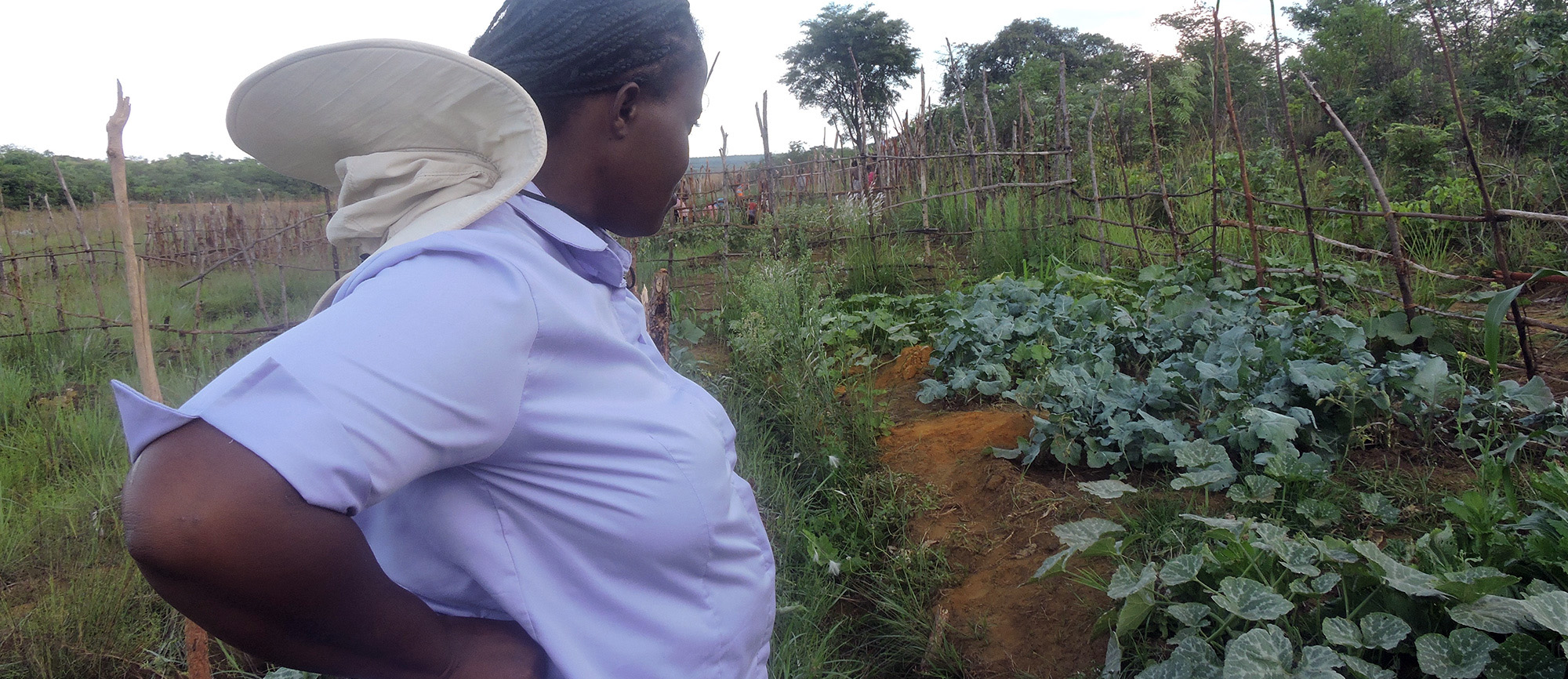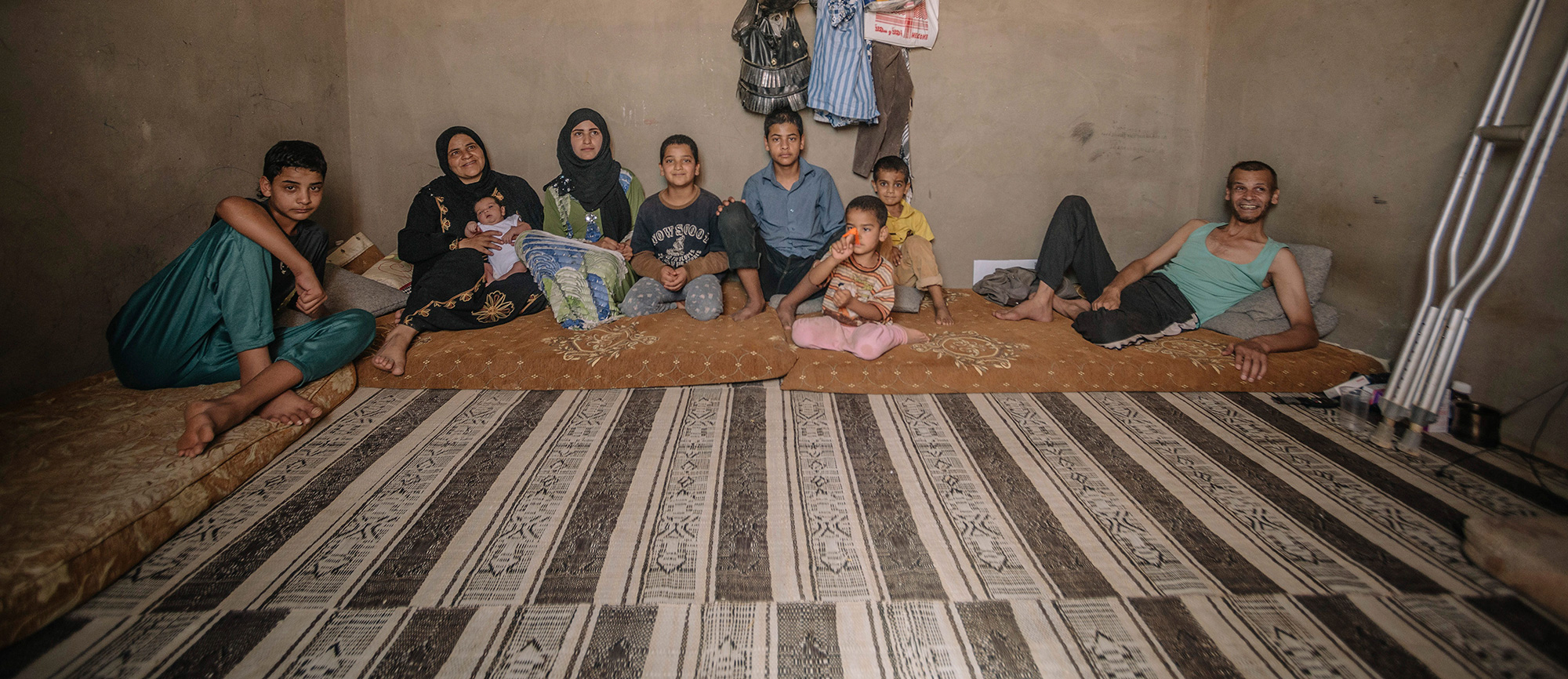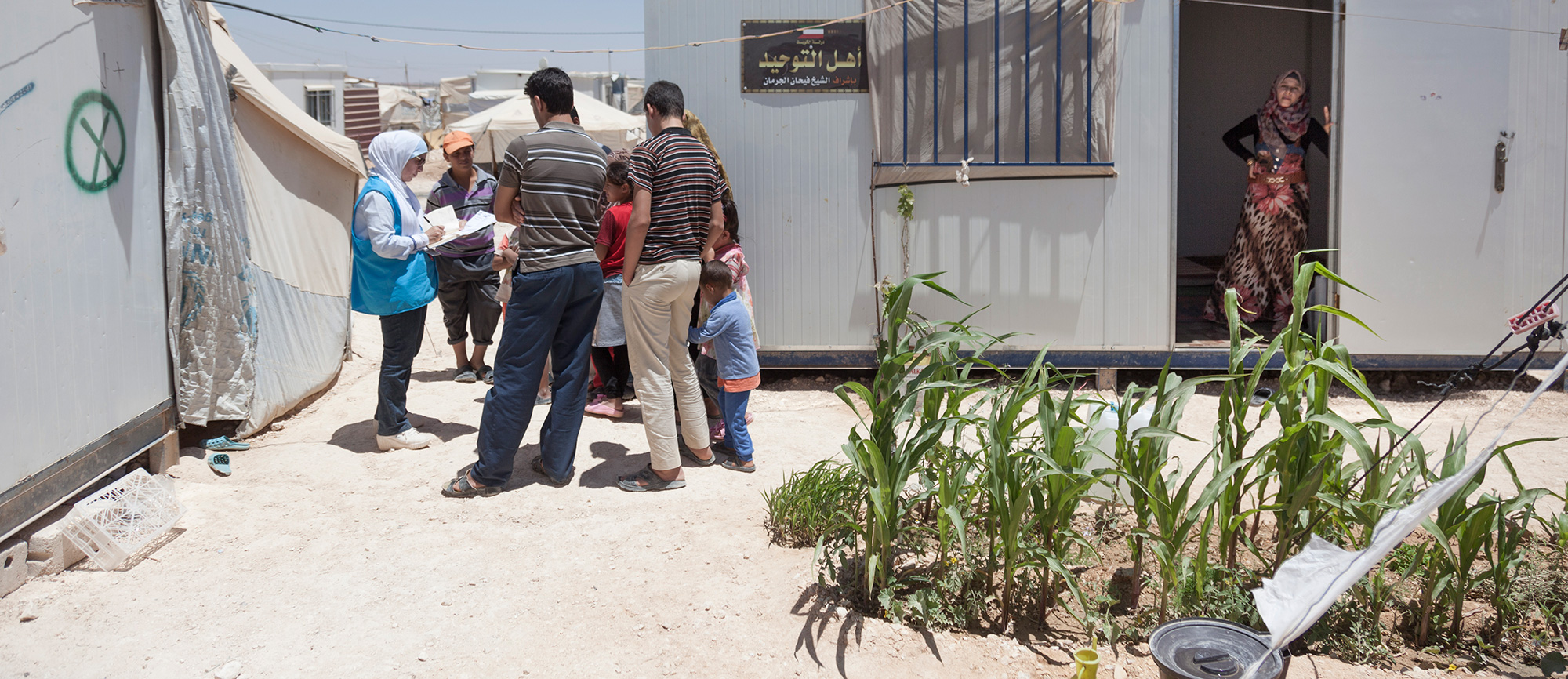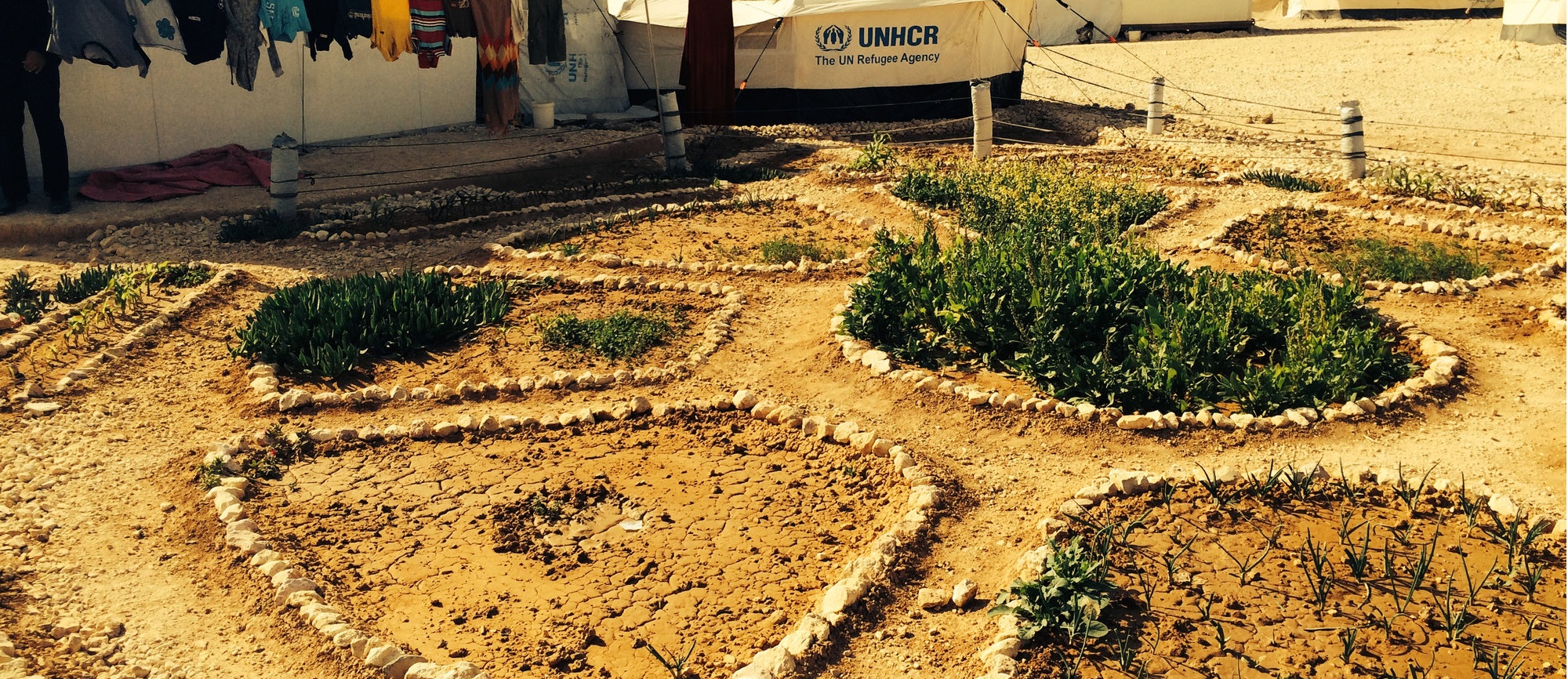1. Define challenges
Boosting nutrition among refugee school children
Refugees in Zambia have a better shot than many at integrating into local society and starting a new life. The Government has committed to assisting over 50,000 people of concern there—many of whom escaped violence in Angola and Rwanda—with basics like education, healthcare and even farmland.
But although Zambia has enjoyed economic gains over the past decade, 70 percent of rural residents still live in poverty, and 42 percent are in extreme poverty. Food insecurity plays a big role in chronic under-nutrition, especially since many people’s diets rely on starchy roots instead of more nutrient-dense fruits and vegetables. In fact, stunting here is above 47 percent – among the highest in the world.
In Mayukwayukwa, one of the two main areas of Zambia where refugees have settled, refugee children make up around 30 percent of the student population. A Government feeding program was already in place to help them, and the other children, get the nutrition they needed. But it wasn’t quite enough.
When UNHCR visited schools in Mayukwayukwa, it conducted a needs assessment that revealed the school feeding program required a boost in order to deliver the intended benefits for refugee and local children alike. The community members approached UNHCR and said feeding all of their students was an important challenge that needed attention.
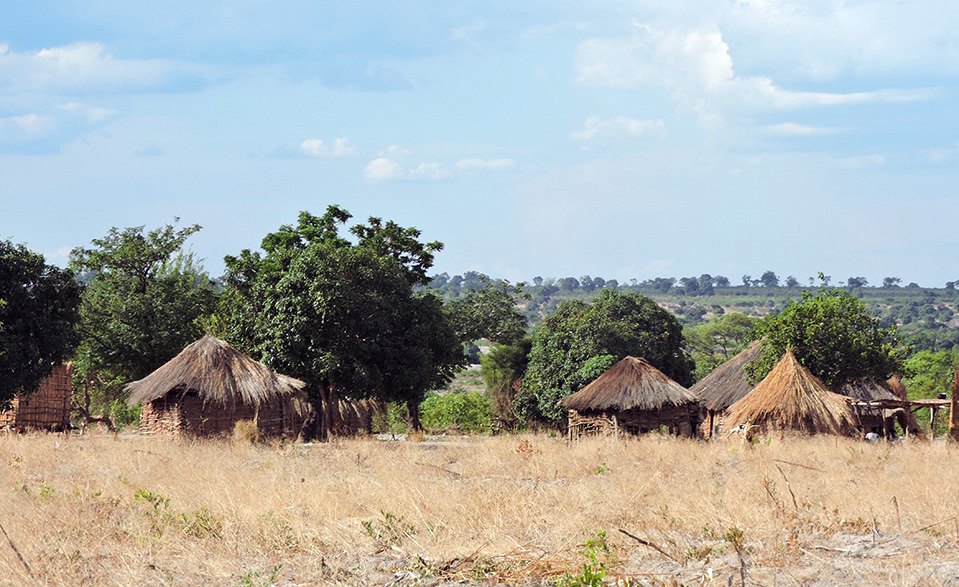
The population of Mayukwayukwa is made up of over 11,000 refugees. Over 6,000 of these are from Angola and the rest are from Democratic Republic of Congo, Burundi, and Rwanda.
2. Identify solutions
A school garden that nourishes, and teaches
School teachers and administrators thought if they had their own vegetable gardens or poultry production, they would be able to meet the needs of feeding all the students.
Two schools proposed the project to UNHCR, and it was approved under the management of Concern Worldwide. With that, two schools each received a poultry house with 100 layer hens, and a vegetable garden.
Concern provided technical advice on egg and vegetable production, as well as agricultural inputs so the schools could plant crops like eggplant, okra, grain and cabbage. Another partner, the international aid organization Caritas, joined in to help with financial management, record keeping and marketing.
Zambia’s Ministry of Livestock provided some training in poultry management, and Concern contracted a local bricklayer to build a hen house for each school.
Students who show interest can participate as an after-school activity for 30 or 45 minutes several days a week. They learn about the agriculture- how to plant, care for and harvest the crops, then also how to market and sell them, collect money and record the transactions.
In addition, they learn about agriculture and production techniques that could help them boost their families’ livelihoods as well.

3. Test solutions
An answer that continues to grow
To see if a school garden and chicken coop could help provide extra nutrition for refugee and local school children, the two participating schools needed to produce vegetables that would thrive without too many costly inputs. The organization also made sure it was the school communities themselves who were making key decisions in the project.
“Before we could train them we asked them what kind of vegetable seeds they would like to go into,” says Doreen Kaushi, Community Development Facilitator at Concern Worldwide. “So we came up with a list of the type of vegetables and we trained them in the same.”
Besides the requested cabbage, okra, tomatoes and onions, Concern also provided the schools with the farm tools they’d need: rakes, garden forks, and wheelbarrows. “Then,” Doreen says, ”they went into production.”
The schools planted test gardens where they could experiment with different crops and techniques like applying manure and organic pesticides instead of store-bought fertilizers and pesticides—to see if they could grow enough to supplement the Government feeding program or even have enough to sell for extra income.
They’ve already realized that planting the pumpkins creates a leafy cover for the soil that helps protect the crops from the sun.
And they found that the organic pesticide methods they tested on the tomatoes, maize, pumpkins and other crops worked extremely well, proving that they did not need to spend valuable cash buying inorganic fertilizer from stores.
‘We were very much into (inorganic) fertilizers and pesticides but because we never had people to advise us,” says one of the teachers who helps with the garden. “It was always a failure. Now we are able to save and we are able to pick and show people.”
In the main garden, a teacher points out the mulching that’s now helping to grow healthy cabbages. The school sold 16 cabbages the other day, giving much-needed money back into the program.
With some training from Concern, egg production also worked very well for the schools. The committee members fed and cared for the chickens and collected enough eggs to supplement the school feeding program. They had enough left over to sell to businesses in the community and even trade with the high school.
Money from the sales of the vegetables and eggs helps supplement food purchases for the school feeding program. The rest goes into an account and will be used for purchasing the next round of hens and seeds.
Today, 331 students participate in the school garden project; 122 of them are refugees.
Anecdotal evidence from the school has already shown that absenteeism has dropped now that children are assured a nutritious free meal at school.

4. Refine solutions
Ownership that creates success
It was the school communities that came up with the idea for the gardens and henhouses, so Concern wanted to make sure that the schools retained full ownership over the projects. It helped both schools establish committees to oversee the activities and make daily decisions.
Two committees at each school, each comprised of ten students, teachers and parents come together to make sure egg production is going well, to assign roles like watering and weeding and of course, to collect the proceeds.
Project leaders knew that involving parents in the project too would give them a sense of ownership. But beyond that, they’re also taking the knowledge gained in the garden home with them.
They’ve seen, from their time in the gardens, the benefits of collecting free and effective manure for fertilizer themselves or from neighbors who are often happy to be rid of excess animal waste.
“There are a few farmers at this stage that are doing fine because of what they have learned from this school,” Doreen says.
Learning what doesn’t work is just as key. One of the schools lost a lot of crops to pigs and realized they’d need to put up a fence. The pigs paid that fence no attention and came right back into the garden. The school went back and constructed a reinforced fence that is holding up just fine. It was a costly lesson, but one that will make the school gardens better going forward.
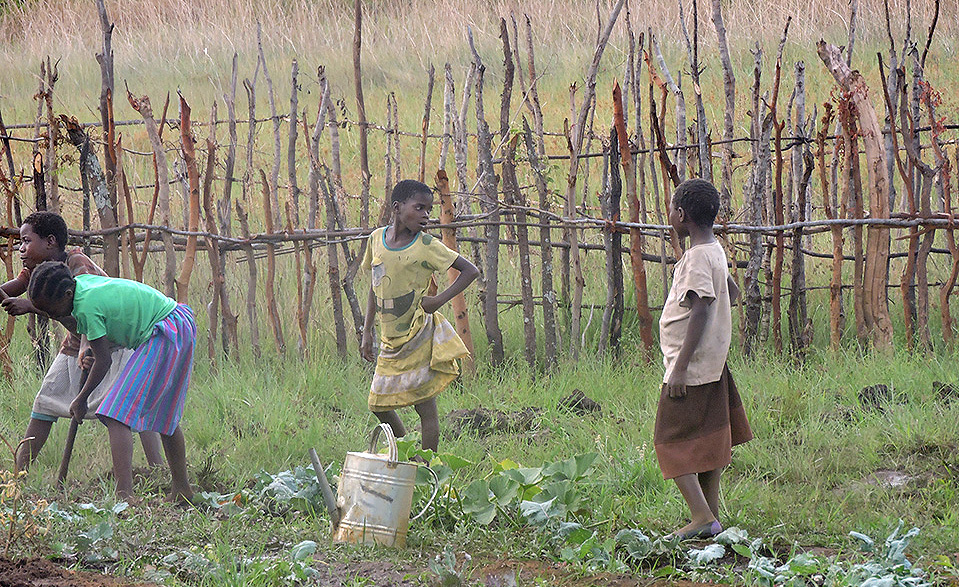
Students from Mayukwayukwa continue to test the most efficient ways of tending to their school garden.
5. Scale solutions
Reinvesting in a good idea
The future is important to the schools and the committees of children, teachers and parents who are managing the project. They want to make sure they’re leaving the soil just as healthy as when they started.
Says one of the teachers involved; “We are trying not to destroy the soil in any other ways so that future generations can benefit from it.”
The schools will continue to learn from the crops in the test garden. The organic fertilizer seems to be yielding excellent maize and tomatoes and will likely be used in a bigger garden next year. The committees will probably switch a lot more of the farming over to organic after seeing the results.
Something that doesn’t seem to need any tweaking: the relationships between the refugee and host students. To these children, they are simply working and learning with friends.
With the success of the small farm and poultry production, the community is making plans to expand the plot size of the school gardens, and purchase 100 more layer chickens with the money from market sales.
They’d also like to buy pumps to help irrigate the crops, and may even expand into rice production or add a fish pond.
However they decide to expand, the next steps will start with the schools and communities themselves.
“After they have identified the needs, they have a common goal,” Doreen says.






